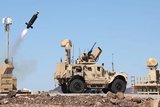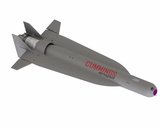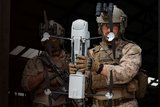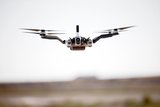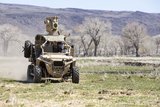Australian government considers MQ-4C Triton UAV
The Australian government has announced that it will acquire the MQ-4C Triton unmanned aerial vehicle (UAV) if the US Navy’s Broad Area Maritime Surveillance (BAMS) development programme is successfully completed. The announcement was included in a press release from the Australian Prime Minister’s office on 13 March.
The Australian Defence Force (ADF) would gain advanced maritime surveillance capabilities from the MQ-4C, with its ability to operate at altitudes up to 55,000ft over extremely long ranges for up to 33 hours at a time.
The aircraft would be used alongside existing and future ADF assets to patrol the country’s ocean approaches and borders, and to protect ocean infrastructure, including energy resources off northern Australia.
According to the government, the acquisition will require approximately $140 million of new facilities and infrastructure, approximately $100 million of which will be invested in South Australia where the UAV will be based. This potentially involves the expansion and enhancement of existing facilities and infrastructure at RAAF Base Edinburgh. Support requirements for Triton should create approximately $20 million annually in further opportunities for South Australian companies.
The total number of Triton UAVs to be acquired and their introduction into service date will be further considered by the government in 2016, based on the Defence White Paper.
Related Equipment in Defence Insight
More from Uncrewed Vehicles
-
![Cummings Aerospace showcases Hellhound loitering munition designed for US Army’s LASSO programme (video)]()
Cummings Aerospace showcases Hellhound loitering munition designed for US Army’s LASSO programme (video)
Cummings Aerospace presented its turbojet-powered Hellhound loitering munition at SOF Week 2025, offering a man-portable solution aligned with the US Army’s LASSO requirements.
-
![SOF Week 2025: PDW unveils attritable FPV drone for SOF operations at scale]()
SOF Week 2025: PDW unveils attritable FPV drone for SOF operations at scale
PDW has revealed its Attritable Multirotor First Person View drone at SOF Week 2025, offering special operations forces a low-cost, rapidly deployable platform for strike and ISR missions, inspired by battlefield lessons from Ukraine.
-
![SOF Week 2025: Teledyne FLIR white paper provides guidance on reusable loitering munitions]()
SOF Week 2025: Teledyne FLIR white paper provides guidance on reusable loitering munitions
Teledyne FLIR is highlighting the emerging requirements for 'recoverable and re-usable' loitering munitions across the contemporary operating environment during this week’s SOF Week conference in Tampa, Florida.
-
![SOF Week 2025: Kraken Technology group debuts K3 Scout USV in North America]()
SOF Week 2025: Kraken Technology group debuts K3 Scout USV in North America
High-performance maritime industry player Kraken Technology Group, based in the UK, has used the SOF Week conference in Tampa, Florida this week to debut its K3 Scout uncrewed surface vessel (USV) to the North American market.
-
![Palladyne AI and Red Cat to demonstrate capabilities for autonomous drone swarms to the US military]()
Palladyne AI and Red Cat to demonstrate capabilities for autonomous drone swarms to the US military
Red Cat and Palladyne AI recently conducted a cross-platform collaborative flight involving three diverse heterogeneous drones.
-
Jammer resistant drone designs spark search for countermeasures
The Russia-Ukraine conflict has driven another stage of evolution for drones and the counter measures to defend against them.








